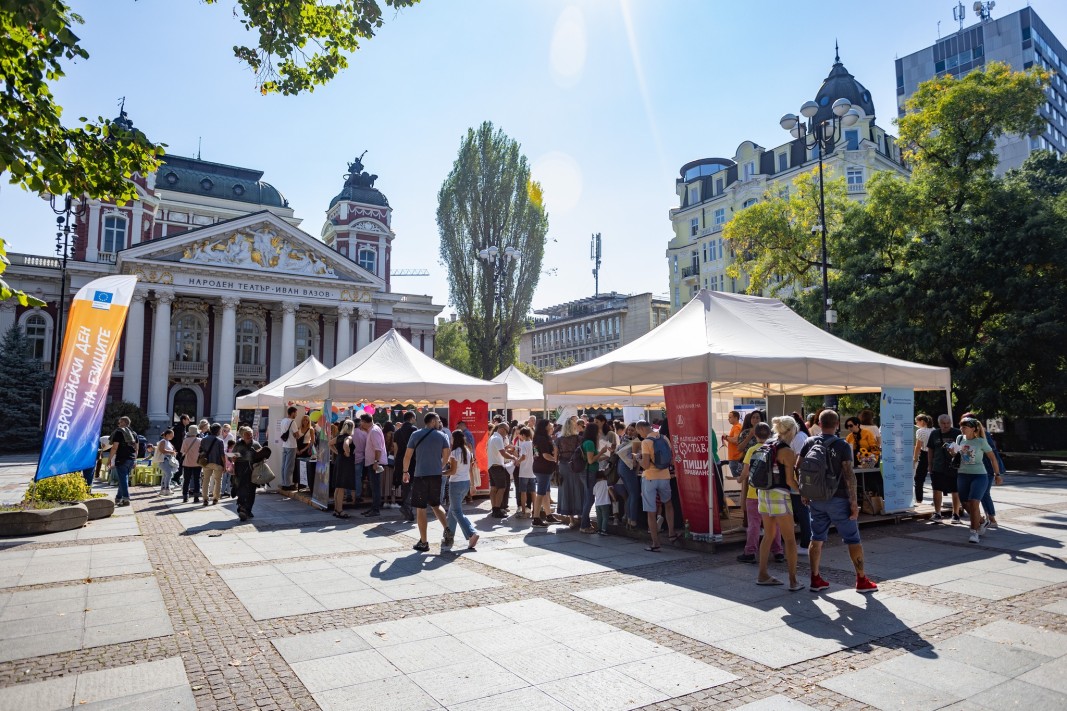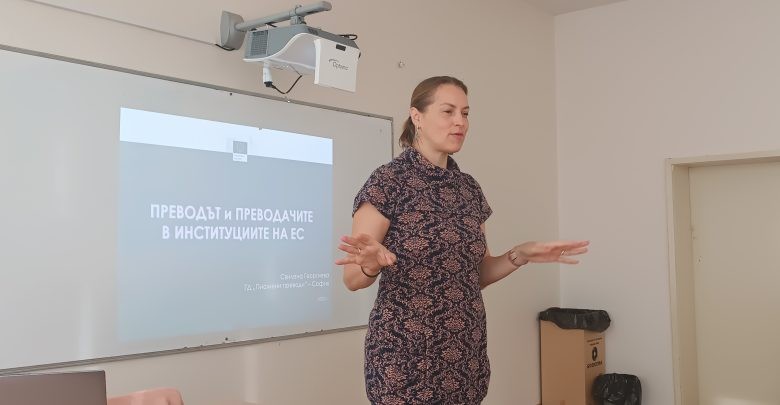Cultural and linguistic diversity - this is what distinguishes the European Union, and the languages spoken in the community are an important part of Europe's cultural heritage. There are currently 24 official languages in the EU and each time a Member State joins the EU, the number increases. This diversity is also the subject of a special day in the Community calendar, which is celebrated in all Member States. The aim is to make Europeans more familiar not only with their own mother tongue, but also with the languages of Europe, and to encourage the learning and use of foreign languages in translation and interpretation.

"We are trying to create a festive atmosphere with lots of language games, quizzes, prizes and lots of music. And for all those who will not be able to be there, we offer an online quiz on the European Day of Languages platform at https://edl-bulgaria.eu..

It is open to everyone over the age of 14 from 1 to 30 September," explains to Radio Bulgaria Svilena Georgieva, local representative of the European Commission's Directorate-General for Translation, the organization closest to the European Day of Languages.

Over 80% of Bulgarians are expected to start using artificial intelligence in the next three years , across all age groups. Today, it is almost impossible to find a Bulgarian student who does not turn to ChatGPT when preparing homework. This..
Serbians around the world mark one year after Novi Sad tragedy On November 1, Serbians abroad will join the call of students in Serbia to mark the anniversary of the collapse of the canopy of the Novi Sad railway..
"We cannot escape from modern technologies, but we must think about how we can use artificial intelligence to improve the quality of education without losing human contact," said Mimi Nicheva, head of the Bulgarian Sunday School "Sts...
On 27 October, the first meeting of Action CA-24150 “Values in Turbulent Times: Navigating Social Change and Challenges (VISTA)” took place in Brussels...
In the summer of 2014, photographer Philippe Bazin and philosopher Christiane Vollaire traveled around Bulgaria, investigating a series..
The European Commission praise s Montenegro’s progress toward EU membership North Macedonia needs decisive action and reforms to begin..

+359 2 9336 661
